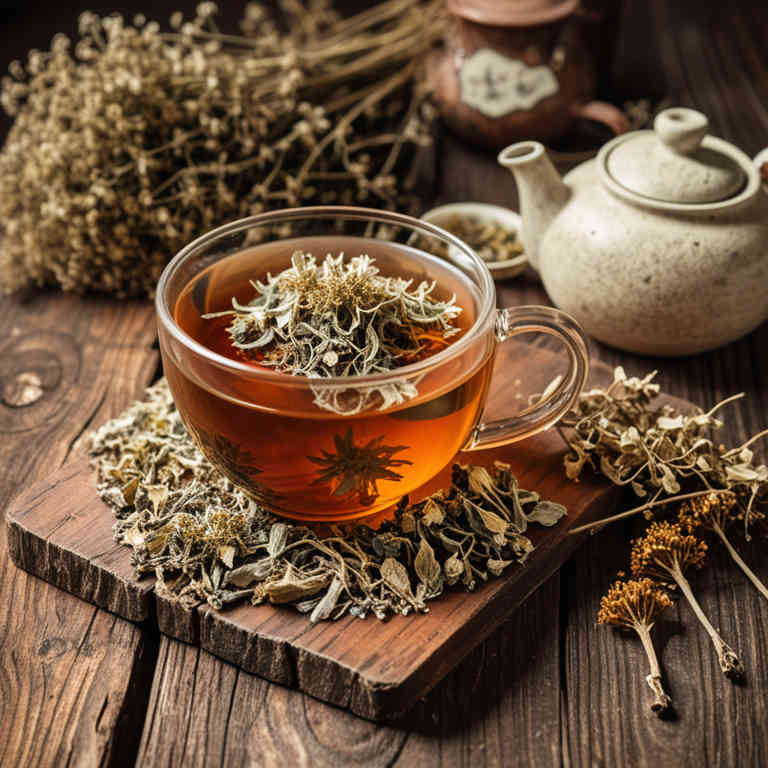Ligusticum wallichii tea for medicinal use

Ligusticum wallichii tea is a herbal preparation made from the dried roots of the Ligusticum wallichii plant, commonly known as Chinese lovage.
It is traditionally used in herbalism to support digestive health and alleviate symptoms of gastrointestinal discomfort. This tea is often consumed to reduce bloating, gas, and indigestion due to its carminative properties. It may also be used to promote liver function and support detoxification processes in the body.
In traditional Chinese medicine, it is valued for its warming effects and ability to harmonize the digestive system.
Uses
Ligusticum wallichii tea has been used to treat various ailments in traditional Chinese medicine for centuries, particularly for its purported effects on the circulatory system and respiratory health.
Historically, it was valued for its ability to alleviate symptoms of colds, flu, and respiratory infections, and was also used to promote blood circulation and reduce inflammation. In modern times, the tea is still used in alternative medicine to support immune function and as a natural remedy for conditions like asthma and hypertension. Some studies suggest that compounds in Ligusticum wallichii may have antioxidant and anti-inflammatory properties.
However, more research is needed to fully understand its efficacy and safety in contemporary medical practice.
Benefits
Ligusticum wallichii tea has health benefits such as improving circulation, reducing inflammation, and supporting respiratory health.
This herbal preparation is often used to alleviate symptoms of colds, coughs, and bronchitis due to its expectorant properties. It may also help in reducing headaches and improving mental clarity by promoting blood flow to the brain. Additionally, Ligusticum wallichii is believed to have antioxidant properties that protect cells from damage.
It is commonly used in traditional Chinese medicine for its warming and invigorating effects on the body.
Constituents
Ligusticum wallichii tea active constituents include ligustilide, butylidenephthalide, and other essential oils that contribute to its therapeutic properties.
These compounds are known for their anti-inflammatory, analgesic, and antimicrobial effects. The tea is traditionally used to support digestive health and alleviate symptoms of gastrointestinal discomfort. It may also help in reducing menstrual pain and improving circulation.
Due to its potent bioactive components, Ligusticum wallichii tea is valued in traditional medicine for its wide range of health benefits.
Preparation
To make Ligusticum wallichii tea, start by measuring 1 to 2 teaspoons of dried Ligusticum wallichii root into a teapot or heatproof container.
Pour freshly boiled water over the herb and let it steep for 5 to 10 minutes, depending on your preferred strength. Strain the liquid to remove the plant material, and serve the tea warm. This herbal tea is known for its potential digestive and anti-inflammatory benefits.
It is often used in traditional medicine to support respiratory and gastrointestinal health.
Side Effects
Ligusticum wallichii tea may lead to gastrointestinal discomfort, including nausea, vomiting, and diarrhea, especially with high doses or prolonged use.
It can also cause allergic reactions in individuals sensitive to plants in the Apiaceae family, such as carrots or celery. Some studies suggest it may interact with blood thinners, increasing the risk of bleeding. Long-term use might lead to liver toxicity, though more research is needed to confirm this.
It is important to consult a healthcare professional before using this tea, especially for those with pre-existing medical conditions or on medication.